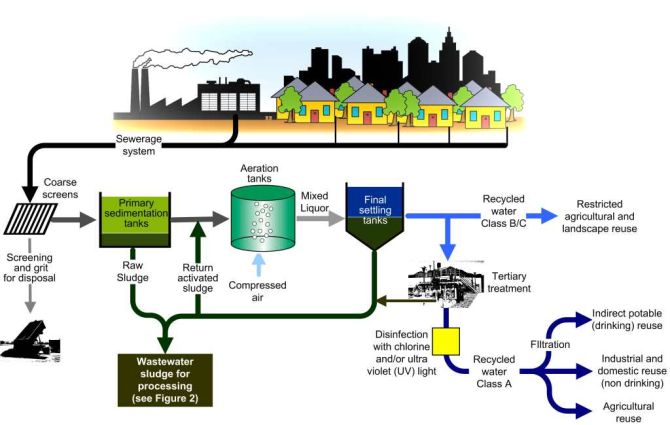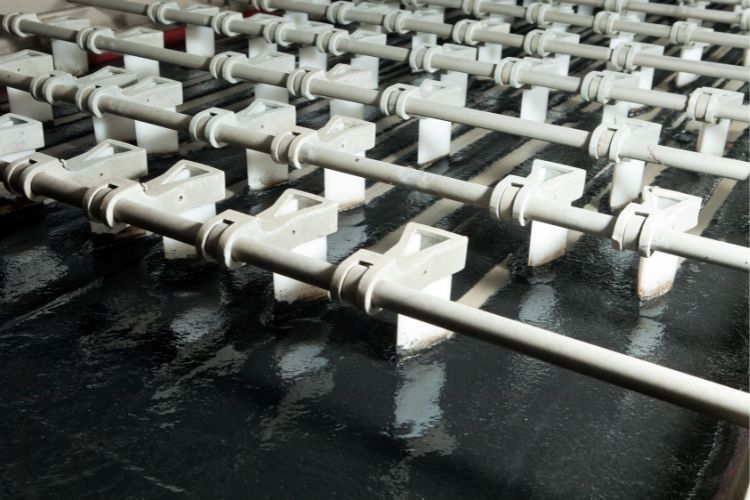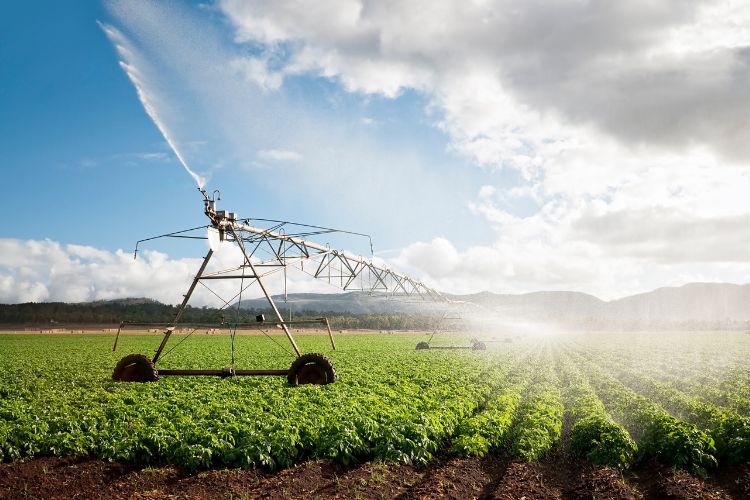There are thousands of different types of waste. Some things go to landfill, and some you can put in your skip bin to be recycled. Well, you probably don’t think much about some types of waste. Maybe you’ve never even heard of them. Take biosolids, for example.
Biosolids are used in agriculture to regenerate soil and rehabilitate land. They have been used as a renewable energy source. Biosolids have even been used to construct roads and make sustainable bricks.
So, what are biosolids, and how is this unique and useful type of waste disposed of? Read on to find out.
What are biosolids?
Biosolids are a by-product of wastewater treatment. In other words, biosolid is the product that’s left behind after sewage is treated. Derived from wastewater sludge, it’s a mix of water and organic matter that’s full of nutrients and stabilised for use by the treatment process.
Where do biosolids come from?
Wastewater isn’t just what gets flushed down the toilet. Most wastewater that enters processing facilities comes from bathrooms, kitchens and laundries.
Australia produces about 371,000 dry tonnes of biosolids annually. Only a small amount of biosolids are sent to landfill as the majority are applied to agricultural land.
What is the process of producing biosolids?
1. Wastewater is sent to treatment plants. The sewage is treated to remove pathogens and other waste types. The treated water is separated from the remaining solids, called sludge.
2. Sludge undergoes the process of digestion. Sewage sludge sits in digesters or tanks for microorganisms to break down organic matter, killing off more pathogens. This process creates biogas, which can be used for energy generation.
3. Excess liquid is removed from the material. Mechanical methods or natural drying beds are used to remove water content.
4. The sludge undergoes a stabilisation process. Anaerobic or aerobic digestion reduces pathogens further to enhance the safety of the biosolid material.
5. Biosolids are tested for quality and disposed of. Testing is conducted to ensure the biosolids meet safety requirements and if they can now have a beneficial use in either agricultural applications or to rehabilitate the land.

Image credit: www.biosolids.com.au – Processes in a typical wastewater (sewage) treatment plant which produce wastewater sludge for processing into biosolids
Are biosolids safe?
In Australia, the application of biosolids is subject to strict regulations and safety standards. This is because if they are not managed properly, they can release pollutants into the environment, and if they are not treated correctly, they can be a hazard to human health.
Biosolids are treated in a way that removes pathogens and contaminants and eliminates odour, but as they contain heavy metals, disposal methods such as agricultural use are used to minimise harm to the environment because it is a beneficial product rich in nutrients.
Why do biosolids matter?
As most Australians are environmentally conscious consumers, we look to companies like Best Price Skip Bins to help practise responsible waste disposal by recycling and reusing where possible. We also look to our government to help find closed-loop solutions to our biggest waste problems.
Without finding beneficial uses for biosolids, they are incinerated, sent to landfills, or released into the ocean. Therefore, by ‘recycling’ biosolids, we’re not just finding a use for this renewable resource. We’re also helping to reduce the need for chemical fertilisers and pesticides on a large scale by improving the soil. This makes using biosolids a sustainable and environmentally friendly option for this waste product.
So, are biosolids being used more?
Unfortunately, no. The use of biosolids has dropped in recent years due to a growing stockpile. Therefore, finding more beneficial uses and projects in which biosolids can be used in the future will be key.
What are some innovative uses for biosolids?
- Agriculture: Biosolids provide nutrients and organic matter to make the soil more fertile, which is especially important in Australia. This also reduces our reliance on synthetic fertilisers.
- Oil and biofuel: Still in the experimental stages, oil from sewage sludge could one day be used as biofuel.
- Construction: As an aggregate in cement products and new construction materials such as sustainable bricks.
- Roads: As an aggregate in road base for highways and on embankments.
- Forestry, landscaping and mining: Biosolids can be used to improve soil condition and promote tree growth in forestry projects as a method of erosion control and rehabilitating mining sites.
Skip bins are an eco-friendly waste disposal option too
As you’ve now read, what was once considered hazardous waste can be put to good use. The same goes for recycling things, such as construction materials, by disposing of them in skip bins.
If you’re wondering whether skip bins are eco-friendly, they are! To hire one for your next project, we service all major regions in Australia.


